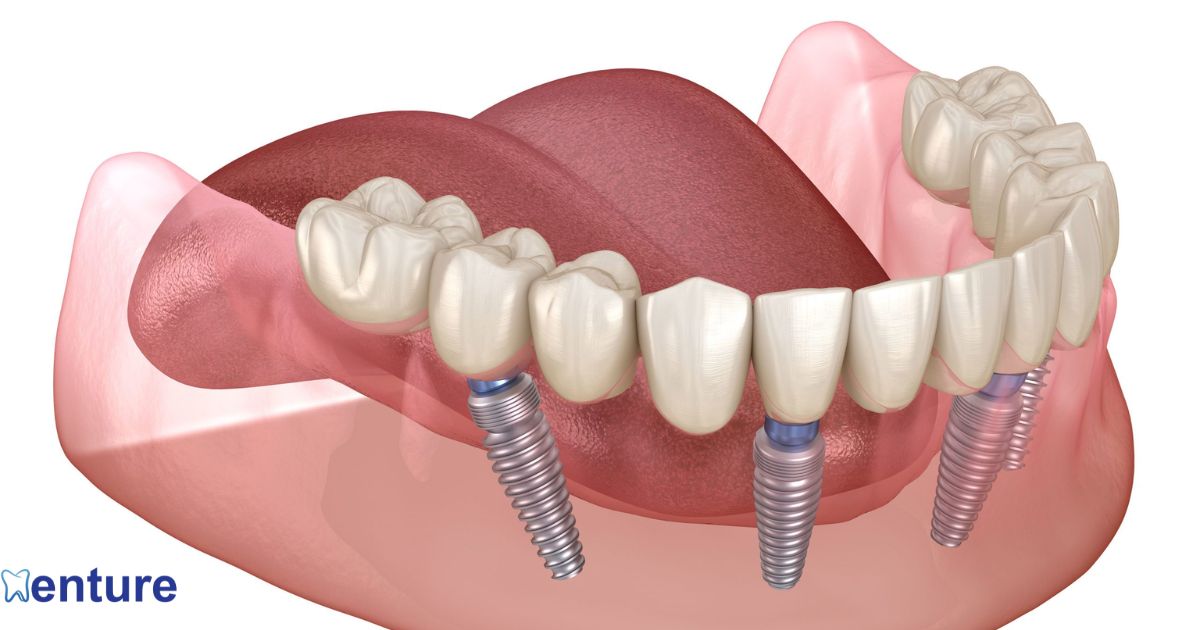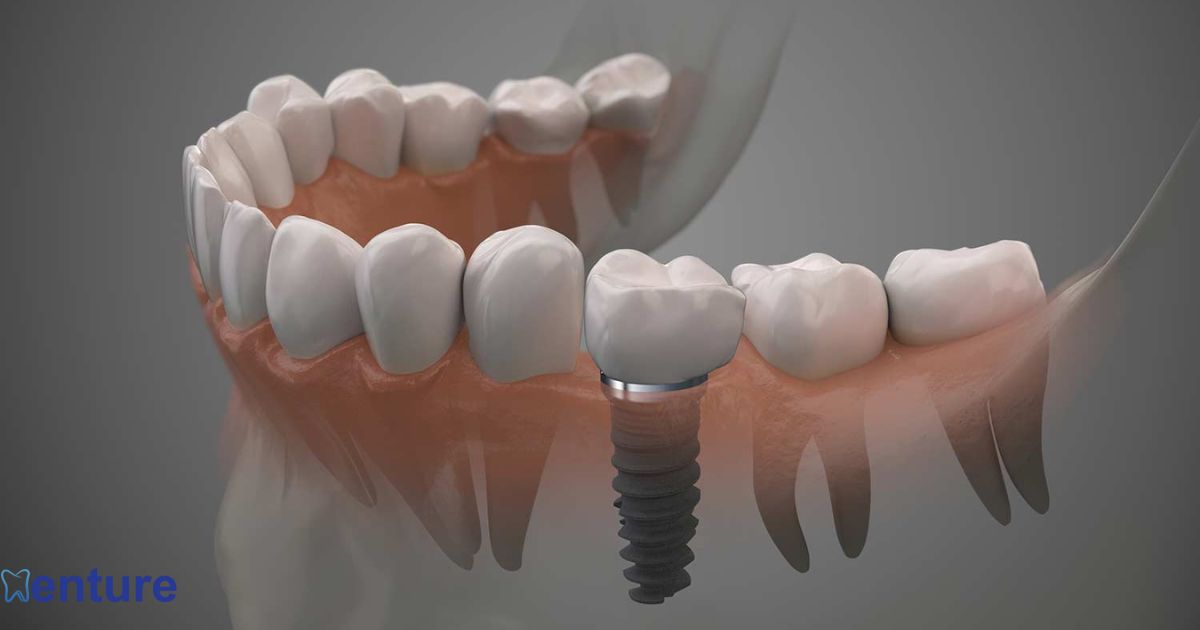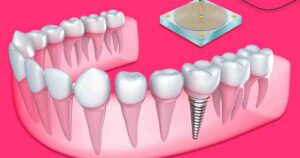When it comes to replacing missing teeth, individuals often find themselves faced with the decision between dental implants and dentures. Both options have their own unique advantages and considerations, making it crucial to carefully weigh the pros and cons before making a choice.
This article aims to provide a comprehensive analysis of implants and dentures, highlighting the differences in procedures, cost, maintenance requirements, and potential complications. By understanding the benefits and drawbacks of each option, readers can make an informed decision that suits their specific needs.
Whether you are seeking a long-term solution or a more affordable alternative, this article will guide you in determining which option – implants or dentures – is better suited for you.
Key Takeaways
- Implants require a surgical procedure with a titanium post inserted into the jawbone, while dentures are removable prosthetic devices.
- Implants offer a more permanent solution that can last a lifetime with proper care, while dentures may require regular adjustments and replacements over time.
- Implants are generally more expensive upfront compared to dentures, but dentures may be more affordable initially.
- Implants require minimal maintenance with regular brushing, flossing, and routine dental visits, while dentures require more frequent cleaning and care.
Procedure Differences
When considering the choice between implants and dentures, it is important to understand the distinct procedural differences involved. Implants require a surgical procedure where a titanium post is inserted into the jawbone to serve as an artificial tooth root.
This is followed by the placement of a crown on top. On the other hand, dentures are removable prosthetic devices that are custom-made to fit the patient’s mouth. Moving on to the cost comparison…
Cost Comparison
The cost comparison between implants and dentures reveals significant differences in pricing structures and long-term maintenance expenses. When considering the cost of dental implants, there are several factors to take into account:
- Implants are generally more expensive upfront compared to dentures, but they offer a more permanent solution that can last a lifetime with proper care.
- Dentures may be more affordable initially, but they require regular adjustments and replacements over time, leading to additional expenses.
- Insurance coverage and financing options may vary, so it’s important to consider the financial implications when making a decision.
Ultimately, the choice between implants and dentures depends on individual preferences, budget, and long-term goals for dental health and aesthetics.
Maintenance Requirements

Maintenance requirements for implants and dentures differ significantly. Implants are designed to be a permanent solution and require minimal maintenance. Regular brushing, flossing, and routine dental visits are typically sufficient. On the other hand, dentures require more frequent cleaning and care.
They need to be removed and cleaned daily, and special care should be taken to prevent bacterial buildup. Denture adhesive may also be necessary for stability. It is important to follow the specific maintenance instructions provided by your dentist to ensure the longevity and functionality of your chosen dental restoration.
Potential Complications
One of the potential complications associated with implants or dentures is the risk of infection. This can occur if proper oral hygiene is not maintained or if the prosthetic devices are not fitted correctly. Other potential complications include:
- Bone loss: Over time, implants may cause bone loss around the implant site, which can lead to instability and the need for additional treatment.
- Gum irritation: Ill-fitting dentures can cause gum irritation and sores, making it uncomfortable to wear them.
- Speech difficulties: Dentures that do not fit properly can affect speech, causing difficulty in pronouncing certain words or sounds.
Considering these potential complications, it is important to make an informed decision when choosing between implants or dentures.
Making an Informed Decision
To make an informed decision between implants or dentures, it is crucial to thoroughly weigh the potential complications and consider individual needs and preferences. Both options have their benefits and drawbacks.
Implants offer a more permanent solution and better stability, while dentures are removable and less invasive. Factors such as cost, oral health, bone density, and personal comfort should be taken into account. Consulting with a dental professional is essential to determine the best option for one’s specific situation.
Alternative Options
Another option to consider is the use of dental bridges as an alternative to implants or dentures. Dental bridges are custom-made prosthetics that are anchored to neighboring teeth to fill the gap left by missing teeth. Here are three reasons why dental bridges may be a suitable alternative:
- Stability: Dental bridges provide a stable and secure solution, allowing individuals to speak, eat, and smile with confidence.
- Natural appearance: Bridges are designed to closely resemble natural teeth, enhancing the aesthetic appeal of the smile.
- Cost-effective: In comparison to implants, dental bridges are often a more affordable option while still providing functional and cosmetic benefits.
Consider these factors when deciding on the best treatment option for your oral health needs.
Pros and Cons of Dental Implants
Dental implants offer a long-lasting and durable solution for replacing missing teeth. Implants are designed to mimic the structure and function of natural teeth, providing a stable and comfortable bite. However, it is important to consider the pros and cons of dental implants before making a decision. Here is a table summarizing the advantages and disadvantages of dental implants:
| Pros | Cons |
|---|---|
| Restores natural appearance | Expensive initial cost |
| Improves speech and chewing ability | Requires surgery |
| Long-lasting and durable | Healing time may vary |
| Preserves jawbone health | Not suitable for everyone |
Now, let’s explore the pros and cons of dentures as an alternative option.
Pros and Cons of Dentures
Moving on to the alternative option, dentures also have their own set of advantages and disadvantages.
- Affordability: Dentures are generally more affordable than dental implants, making them a more accessible option for those on a limited budget.
- Removability: Dentures can be easily removed for cleaning and maintenance, providing convenience and flexibility.
- Adjustability: Dentures can be adjusted or replaced as needed, allowing for modifications if there are changes in oral health or jaw structure.
While considering dental options, have you explored the possibilities of Dentures In Utah. While dentures offer affordability and flexibility, they may not provide the same level of stability and natural feel as dental implants. It’s important to weigh these factors and consult with a dental professional to make an informed decision.
Comparing Implants and Dentures

When comparing implants and dentures, it is important to consider the long-term durability and functionality of both options. Implants are a permanent solution as they are surgically placed in the jawbone, providing stability and strength similar to natural teeth.
Dentures, on the other hand, are removable and may require adjustments over time. Implants offer a more natural appearance and better chewing ability, while dentures are a more affordable option. Ultimately, the choice depends on individual needs and preferences.
Considering Your Specific Needs
To make an informed decision between implants and dentures, it is crucial to carefully consider your specific oral health requirements and lifestyle factors. Here are three key factors to consider:
- Bone health: Implants require a certain amount of healthy bone structure for successful placement. Dentures may be a better option if you have significant bone loss.
- Convenience: Implants offer a permanent solution that requires minimal maintenance, while dentures may need to be removed and cleaned regularly.
- Budget: Implants are generally more expensive upfront, but they can be a cost-effective long-term investment. Dentures may be a more affordable option initially.
Conclusion
In conclusion, when deciding between dental implants and dentures, it is important to consider individual needs and preferences. While dental implants offer a more permanent and natural-looking solution, they can be more costly and require a more invasive procedure.
On the other hand, dentures are a more affordable and non-invasive option, but may require regular maintenance and adjustments. Ultimately, the choice between implants and dentures should be based on careful consideration of the pros and cons, as well as consultation with a dental professional. As the saying goes, “Different strokes for different folks.”











